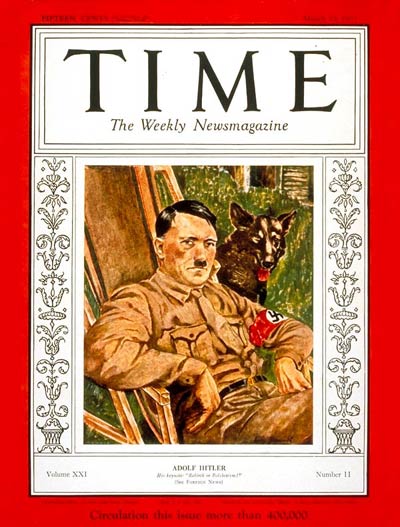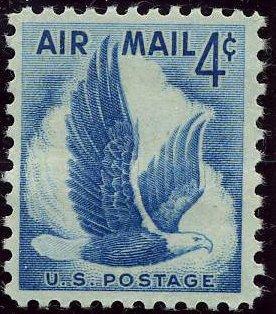One year earlier: "My good friends, for the second time in our history, a British Prime Minister has returned from Germany bringing peace with honour. I believe it is peace for our time." British Prime Minister Neville Chamberlain
Nine months earlier:

Time's "Man of the Year" for 1938
The Invasion of Poland, also known as the September Campaign or 1939 Defensive War or the Fourth Partition of Poland (Polish: Kampania wrześniowa or Wojna obronna 1939 roku or IV rozbiór Polski) in Poland and the Poland Campaign (German: Polenfeldzug) or Fall Weiss (Case White) in Germany, was an invasion of Poland by Germany, the Soviet Union, and a small Slovak contingent that marked the beginning of World War II in Europe. The German invasion began on 1 September 1939, one week after the signing of the Molotov–Ribbentrop Pact, while the Soviet invasion commenced on 17 September 1939 following the Molotov-Tōgō agreement which terminated the Nomonhan incident on 16 September 1939. The campaign ended on 6 October 1939 with Germany and the Soviet Union dividing and annexing the whole of Poland ...
None of the parties to the conflict—Germany, the Western Allies or the Soviet Union—expected that the German invasion of Poland would lead to a war that would surpass World War I in its scale and cost. It would be months before Hitler would see the futility of his peace negotiation attempts with the United Kingdom and France, but the culmination of combined European and Pacific conflicts would result in what was truly a "world war". Thus, what was not seen by most politicians and generals in 1939 is clear from the historical perspective: The Polish September Campaign marked the beginning of the Second World War in Europe, which combined with the Japanese invasion of China in 1937 and the Pacific War in 1941, formed the cataclysm known as World War II ...













